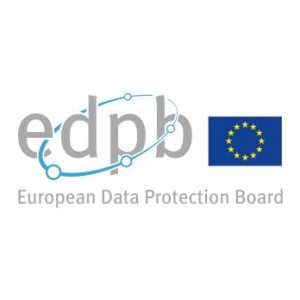 It may seem that the very term “ransomware” wasted little time going from “newish-sounding threat” to expected, constant presence in the news and IT meetings alike. But, of course, it’s ultimately just a modern word for one of the oldest crimes out there—holding someone or something hostage until someone else pays for its release. Nonetheless, as the targets and means of these attacks have evolved, keeping track of it all has become a bit more complicated than a name on a ransom note. The ransomware landscape is constantly shifting as actors change their targets, find new points of attack and think of fresh ways to leverage encrypted data. Hundreds of variants of ransomware have been documented over the past few years, but here’s a cross-section of types posing a threat right now.
It may seem that the very term “ransomware” wasted little time going from “newish-sounding threat” to expected, constant presence in the news and IT meetings alike. But, of course, it’s ultimately just a modern word for one of the oldest crimes out there—holding someone or something hostage until someone else pays for its release. Nonetheless, as the targets and means of these attacks have evolved, keeping track of it all has become a bit more complicated than a name on a ransom note. The ransomware landscape is constantly shifting as actors change their targets, find new points of attack and think of fresh ways to leverage encrypted data. Hundreds of variants of ransomware have been documented over the past few years, but here’s a cross-section of types posing a threat right now.
News of Note for the Internet-Minded (2/1/22) – AI Colleagues, AR Experiences and Ransomware Dangers
Can AI build AI, what does an augmented reality theater production look like, what is the “quantum apocalypse,” and more…
Second ’Verse, Same as the First: Advertising, Influencing and Disclosure in the Metaverse
Back in the day when I rushed home after school to play The Sims, I would have never imagined that one day I would actually become a Sim… Of course, it turns out The Sims—and games like it—have always been an early, somewhat limited iteration of what is now popularly referred to as the metaverse. And no matter the world you inhabit, where there are humans, there are efforts to sell things to them. But that raises the question: how different are the rules for advertising in the metaverse going to be? It turns out that whether “uni,” “multi” or “meta,” certain constants apply when it comes to advertising, no matter the ’verse.
News of Note for the Internet-Minded (1/26/22) – The Virtual Big Bang of NFTs and the Metaverse
This metaverse-meets-NFTs themed edition of News of Note includes travel, food and shoes, a big box retailer entering the NFT arena, and the purchase of (a film adaptation of) a sci-fi classic.
Artificial Intelligence and Regulatory Compliance
 Regulators at the state and federal level are increasing their scrutiny of businesses’ use of artificial intelligence (AI). For example, recently, representatives from the Office of the Comptroller of the Currency and the New York State Department of Financial Services discussed the need for developing additional AI guidance.
Regulators at the state and federal level are increasing their scrutiny of businesses’ use of artificial intelligence (AI). For example, recently, representatives from the Office of the Comptroller of the Currency and the New York State Department of Financial Services discussed the need for developing additional AI guidance.
NFTs, Web 3.0 and the Technologies Enabling the Metaverse
Riaz Karamali recently joined host Joel Simon on the Industry Insights podcast to discuss the issues and innovations driving the video game industry, including the emergence of the Metaverse and how non-fungible tokens, blockchain and Web 3.0 may underpin it.
The FCC Adds Teeth to Internet Protocol (IP) Closed Captioning Rules
 It’s the end of the day and you find yourself with a little downtime to catch up on your favorite streaming show. Whether it’s because each episode vacillates between the loudest of explosions and the quietest of dialogue or your hearing just isn’t what it used to be—you find yourself constantly adjusting the volume so that you can hear the crucial reveal whispered by the main character’s best friend at the penultimate moment before turning the volume down as fast as possible so that you don’t wake everyone in the house when all mayhem breaks loose and the main character is forced to escape a self-destructing secret base. Thankfully, you remember that you can just turn on closed captioning, set the remote down, and enjoy the show without missing any of the dialogue. However, for those who are deaf or have hearing loss, closed captioning is much more than a convenience—it is a vital tool for providing access to the universe of streaming.
It’s the end of the day and you find yourself with a little downtime to catch up on your favorite streaming show. Whether it’s because each episode vacillates between the loudest of explosions and the quietest of dialogue or your hearing just isn’t what it used to be—you find yourself constantly adjusting the volume so that you can hear the crucial reveal whispered by the main character’s best friend at the penultimate moment before turning the volume down as fast as possible so that you don’t wake everyone in the house when all mayhem breaks loose and the main character is forced to escape a self-destructing secret base. Thankfully, you remember that you can just turn on closed captioning, set the remote down, and enjoy the show without missing any of the dialogue. However, for those who are deaf or have hearing loss, closed captioning is much more than a convenience—it is a vital tool for providing access to the universe of streaming.
Web Scraping Watch: Cases Set to Clarify Application of the Computer Fraud and Abuse Act
 For years, website owners have leveraged the federal Computer Fraud & Abuse Act (CFAA) as a tool to combat unauthorized scraping of data and other content from their websites. Due to a circuit court split on the interpretation of the CFAA’s “exceeds authorized access” provision, there has long been a legal gray area around the widespread practice of web scraping and whether scraping data from publicly accessible websites can give rise to liability under the CFAA. A set of closely watched, high-level court cases, however, may soon offer some long-awaited clarification on the reach of the CFAA to web scraping.
For years, website owners have leveraged the federal Computer Fraud & Abuse Act (CFAA) as a tool to combat unauthorized scraping of data and other content from their websites. Due to a circuit court split on the interpretation of the CFAA’s “exceeds authorized access” provision, there has long been a legal gray area around the widespread practice of web scraping and whether scraping data from publicly accessible websites can give rise to liability under the CFAA. A set of closely watched, high-level court cases, however, may soon offer some long-awaited clarification on the reach of the CFAA to web scraping.
As European Regulators Take Use of Cookies More Seriously, Here Are the Basics for Compliance
 This week the European Data Protection Board (EDPB), a body that represents European data protection authorities, set up a new cookie banner taskforce. The new taskforce will coordinate the response to over 400 complaints concerning cookie banners filed by a nonprofit organization founded by Max Schrems, None of Your Business (NOYB).
This week the European Data Protection Board (EDPB), a body that represents European data protection authorities, set up a new cookie banner taskforce. The new taskforce will coordinate the response to over 400 complaints concerning cookie banners filed by a nonprofit organization founded by Max Schrems, None of Your Business (NOYB).







